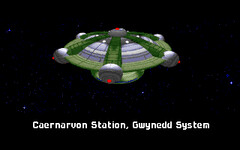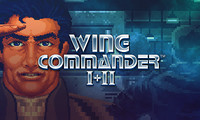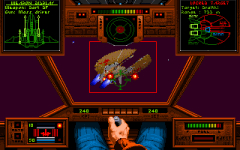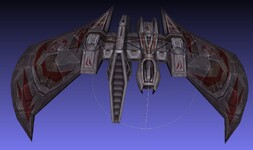To Quell the Rumors



Boomer took the time out of his holiday vacation to post this long clarification letter on the so-called "Privateer Online" rumors. Remember "Privateer Online" has *not* been announced as a potential project by Origin.Posted by Boomer on December 26, 1998 at 10:22:32:I've been reading some of the comments about 'Privateer Online' and thought I'd jump in here and clear up a couple things or more correctly, massively multiplayer persistent online gaming (or MMPOG, to keep from spelling that out all the time) in general.
First, despite whatever youy see/read in the articles it's all speculation. Origin has NOT announced 'Privateer Online'. So take what you read with a grain of salt.
Also note I really can't debate the merits of single user vs online only type games. Since that's a personal choice whatever your position, you're right. Thus 'arguing' about single user vs online is a snake pit and I just don't want to go there ;)
Nor can I provide any response/resolution to the current telecom environment that International players are under (e.g. paying for phone services by the minute, etc.). All I can say is I feel for you because it clearly creates a barrier to enjoying a fascinating gaming genre (e.g. online persistent worlds).
However, I would like to clear up some false assumptions about massively multiplayer persistent online gaming, namely:
1. The technology is not ready. Balderdash... I've been playing massively multiplayer persistent online flight sims for close to 10 years now. Virtually lag free too I might add. And this at the 9600/14.4 connect. In fact, higher speeds are NOT recommended since as in all things Internet, the less data sent/required for online gaming the better (and the communications technology used in the games I play do not NEED massive amounts of data to be smooth & precise).
You cannot compare persistent gaming to the first person shooter multiplayer gaming (e.g. 'Quake', etc.) or even something like 'X-wing vs Tie Fighter'. Those are 'peer to peer' games (e.g. a player must also act as the host). Fundamentially those games are 'Internet enabled' LAN communications technology (ala 'Kali'). The performance is dependent (among other things) upon the hosts connect (reliability/stability), his CPU 'bandwidth' (to accomodate the other players), etc. It's why you see such games limited to the more common 4 player games. Massively multiplayer persistent online games (hundreds/thousands of simultaneous players) require a 'client/server' architecture. That is, the client (you) are processing all the graphic display requirements while the server (the main host) is serving only the data needed for the client to play the game against all the other players.
And you cannot compare a 'flight sim' type of game to that of UO. UO requires *massive* amounts of information (all inventories, etc.) to be passed back/forth between the server (dedicated host) and you (the client). There isn't nearly the data (bandwidth) required for 'flight sim' type of games. Why? because fortunately, real time flight sims can be 'modeled' using predictive smoothing technologies. That is, you (the client) doesn't have to be kept informed in 'real time'. Instead, the client can simply receive 'updates' and between those updates, your computer is 'predicting' what the opponent is doing.
I will add it takes some 'tweeking' to get optimal performance. And understanding how the Internet works. No matter how good the communications technology used, what you tweek, if you're ISP is not 'Fat' you will have a poor experience (and a good gaming ISP doesn't necessarily have to be a well known 'big shot' either)
Bottom line is the bandwidth/technology is not a barrier. For those that doubt me, email me and I'll point you to some MMPOG's that will prove my assertion beyond a doubt.
2. I can't affort it or It isn't worth the (insert the monthly fee here). Fair enough. Each of us makes such decisions about our entertainment dollar every time we look for a game (whether it's single user or online service). I could make the argument that 'I can't afford it' doesn't fly with me (personally) since subscription fees are less than what most of us pay for a single movie or a couple 6-packs of beer ;) But, to each his/her own.
A 'corollary' to the argument is 'I won't pay for online gaming because I can get it free at (insert a dating service like diablo, etc. here). Again, those services do not require a server (other than to provide a chat room, easily done with any PC). Persistent gaming using client/server architecture must be 'mission critical' since they store all you're player info (don't want to show up and find all your hard work gone). Thus, the servers, 'pipes' (connections to the internet) and other infrastrucure needs are completely different than 'peer to peer' gaming.
I must say I personally am extremely biased *toward* massively multiplayer persistent online gaming (MMPOG). As I said, I've participated in MMPOG as a player for close to 10 years. I've enjoyed it so much I changed my career to be a part of this business (being an employee of MMPOG companIES since '95). Why?
3. Community: This, to me is the biggest single attraction of massively multiplayer persistent online gaming. Like to talk about stuff on a BBS? Wouldn't it be nicer to chat about things while in-game? Within the 'world' itself? Online gaming allows people with like-minded interests to 'congregate' within the very subject matter they're interested in. This isn't to mention the 'subgrouping' (e.g. squadrons, guilds, etc.) provided by the game environment (allowing those with specific interests togather together for a common purpose).
Point being, my experience/observation about MMPOG's is they simply provide the 'wrapper', a common denominator for people to get together, have fun together. A sort of a 'themed' global village if you will. I could relate stories about how online communities have come together/rallied to help others in need, support the ups/downs of individuals, even expanded their online 'clubs' to more real life community efforts to ensure a 'national treaure' wasn't lost to history. Me? I'm just glad I could go virtually anywhere in the world and have someone local to buy me a beer ;)
4. "Role playing": No, I'm not referring only to fantasy medieval 'D&D'. Whatever the 'subject', because it's persistent there is the ability to create a unique online 'personna' (ever wonder how I got the nick 'Boomer'?). Sure you can create an 'identity' on a BBS or chat room. But any purported 'skill' and bravado boils down to how you cut it/act *in-game* ;) Some will become legends, others will simply 'hang-on' ;) In any case, you will come to know and become closer to people like you never could in 'non-real-time'.
5. MMPOG's constantly evolve: In general (at least my experience thus far), like a fine wine, MMPOG's improve with age. That is, the community can feed back point out problems/give suggestions, that are then fixed/incorporated into the game over time. Case in point: most changes to UO have come from the players themselves. This effectively allows the players to create the 'ultimate' game. Of course there are 'conditions' but in my experience MMPOG's only get better over time, thanks to player input.
I think I've hit all the high spots. I could go on, but it's hard using this format. Is there anything specific I didn't cover, want me to expound upon?
Boomer
p.s. Please, no questions specifically about something unannounced.














Follow or Contact Us